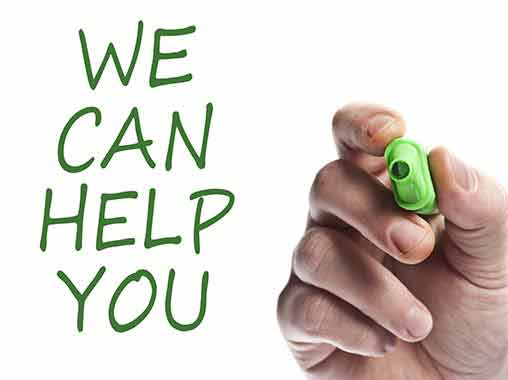Choosing The Right Meth Addiction Treatment
As experts make perfectly clear, meth addiction treatment approaches need to be correctly matches with a client’s requirements and problems. Jumping into meth addict treatment without researching a program and discerning how well the setting, services, and interventions align with your needs set you up to fail in many situations.
By researching treatment programs and interventions, you increase your likelihood of making a good choice. But, the data that you gather needs to be trustworthy and reliable. This is why you should be aware of treatment options that are evidence based. Seeking these options makes it far more likely you will achieve positive treatment outcomes.
What Is Evidence Based Meth Addiction Treatment?
I am sure you know from the internet searches you have made that the sheer volume of meth addict treatment options is completely overwhelming. Plus, a lot of what you find online are thinly veiled cons. For instance, addiction can’t be cured, so any treatment promising it can do that for you is lying.
Instead of hype and untruths, you need to access stable, dependable information. Further, you should be looking for evidence about the way treatment performs, and this is what evidence based treatment references. These interventions are backed up by actual evidence produced in quality research. When you pick these treatment options, you know their efficacy has been studied and verified.
Are All Evidence Based Treatments the Same?
There are levels of evidence based treatment.
- Level 1: the result of true experimental designs, like clinical trials, which include randomization
- Level 2: the result of quasi experimental designs, which do not include randomization
- Level 3: the result of agreement within a profession
- Level 4: the result of qualitative literature reviews and reputable publications
- Level 5: the result of personal accounts and experiences
Which Levels Should I Be Looking For?
Obviously, the least respected evidence is that of level five, with level one has the highest value. You want to aim for a level of research that is close to level one. Level five is best avoided.
Why Can’t I Trust Meth Addiction Treatment Approaches Supported by Anecdotal Evidence? Meth Addict Treatment and the Danger of Personal Experiences and Accounts
As the addiction sciences mature, there is more and more effort being made to incorporate treatment for drug and alcohol addiction into the larger medical culture. Because of this, approaches and methods are under increased scrutiny, which is good for you and your meth addiction treatment because it makes it likely that the care you get will be successful. But, you need to be looking for interventions supported by research and not by personal accounts.
Does All Meth Addict Treatment Have the Potential to Be Successful?
First of all, the level of a treatment’s effectiveness really depends on how you define success, so you need to know that before you start doing your research. Generally, ending drug use is the goal, but you probably also want to return to living a healthy, stable life. Therefore, you need to look for methods that have a track record of providing those outcomes.
As the National Institute on Drug Abuse emphasizes, “No single treatment is appropriate for everyone.” Consequently, though many treatment may offer success, they won’t offer it to every patient. Your success will depend on matching methods to your needs and issues.
Why Is Anecdotal Evidence a Problem?
Ad people, we learn a lot form the experiences and stories that other people tell. Generally, people tell the truth and listeners can take in the information and critically apply it to their own lives. We learn from the mistakes of others and save ourselves a lot of time and suffering. So, it’s a lot more comfortable for the average person to think anecdotally than scientifically. But, that doesn’t make anecdotal evidence something you should follow when choosing meth addict treatment because:
- People are prone to creating connection or causality where none exists
- Human senses are easily tricked
- People cherry pick information and ignore valuable data when it doesn’t fit their desired conclusions
What Evidence Should I Be Looking For?
You want to look for meth addiction treatment methods that are backed by things like:
- Clinical trials
- Randomized studies
- Experimental designs
- Professional consensus
- Qualitative literature reviews
- Respected publications
What Happens When a Meth Addiction Treatment Approach Isn’t Evidence Based? The Problem with Anecdotal Evidence and Meth Addict Treatment
Deciding that you need help from a meth addict treatment program is a critical step in the process, but you don’t get to just transition into rehab right away. You actually have to take some time and learn about what happens in meth addiction treatment. But, it can be difficult to sort fact from fiction and to determine the type of treatment that is most likely to lead to long-term successful outcomes.
To make the best choices about the type of interventions used in treating your meth addiction, you need access to trustworthy information. This can be found by looking for methods whose effectiveness has been backed up by evidence. These are referred to as “evidence based substance abuse treatments.” These are generally what professional, quality meth addiction treatment centers use to help clients. When this sort of evidence isn’t used, a lot of problems result.
It Cost You Precious Time
Meth addict treatment facilities make a lot of claims. If they can’t be verified, then there is no reason why the methods they promote will have a positive effect on your addiction. Thus, you may be wasting considerable time with interventions that have no ability to help you.
It Can Cost You Your Chance at Recovery
Some people only have the money, support, or wherewithal to attend meth addict treatment a single time. If the methods used aren’t likely to work, you could jeopardize the only true chance you have at sobriety.
It Can Cost You Self Efficacy
Your self-efficacy is your belief in your capacity to succeed in a situation. If you fail in meth addiction treatment because the methods aren’t evidence based, you may come to believe that you lack the ability to ever succeed. Ultimately, this will make it harder for you to quit.

